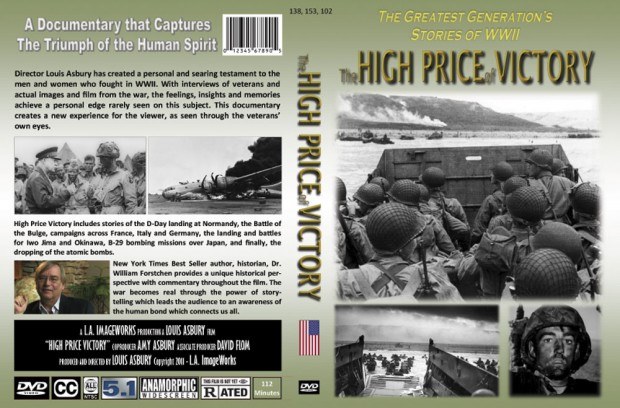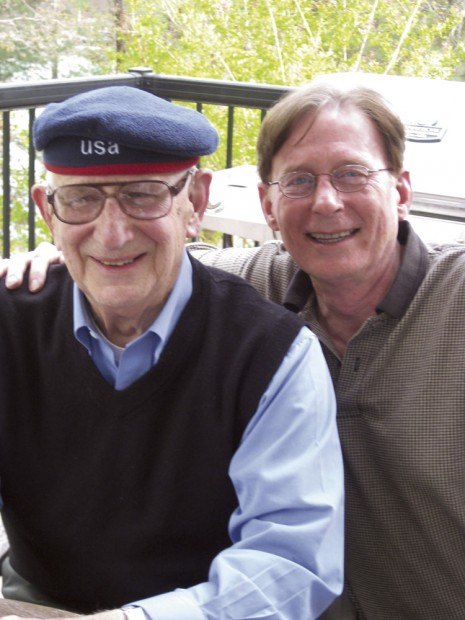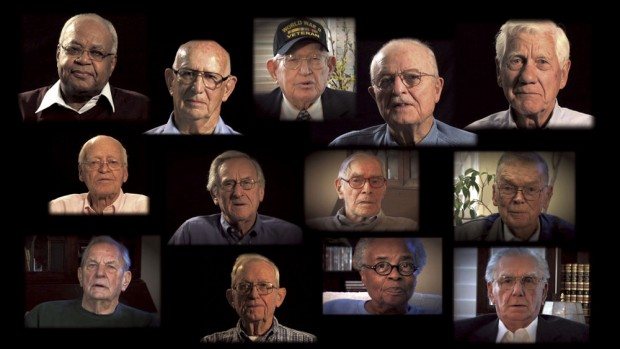LIHU‘E — They parachuted behind enemy lines, charged sandy beaches and patrolled the Pacific. They have been dubbed “The Greatest Generation” by Tom Brokaw for their ability to come together and lift this country up. They are also dying at
LIHU‘E — They parachuted behind enemy lines, charged sandy beaches and patrolled the Pacific. They have been dubbed “The Greatest Generation” by Tom Brokaw for their ability to come together and lift this country up. They are also dying at a rate of 1,000 to 1,200 a day, and that’s why filmmaker Louis Asbury is inspired to chronicle the stories of WWII veterans, regardless of which side they fought.
Asbury will be visiting Kaua‘i Sept. 20 through 27 in hopes of interviewing a Japanese WWII veteran for his film, “High Price Victory.”
“I thought it would be very appropriate, if possible, to get a veteran that was Japanese and fought for the other side,” Asbury said. “Throughout the documentary, it becomes quite evident — and it’s commented on several times — that our government told us to fight them and their government told them to fight us, and we had no choice.”
Asbury is a retired Air Force and Vietnam veteran who lives in North Carolina.
His father was a WWII veteran, who was involved with the Manhattan Project. Asbury said making “High Price Victory” is a way to honor him.
To date, he has interviewed 16 veterans and compiled more than 35 hours of interviews, which he has condensed into two hours of film.
“He’s not trying to get gruesome details,” said Sheridan Hill, who is working with Asbury on this project. “He’s trying to get to the heart of the matter and add that side that is so critically important.”
“High Price Victory” takes the stance that nobody was right and nobody was wrong.
“In times of war, people fight for their sides,” Hill said. “He wants to honor veterans on all sides.”
Asbury self-funded this project, which he plans to screen on national television.
“The documentary, it kind of started on a whim,” Asbury said. “In my neighborhood, there was a WWII veteran who flew B-29s over Japan. He was 92 years old, and being a filmmaker, I said to his daughter, ‘We need to document this.’
“Our World War II veterans — not only Americans, but Germans and Japanese and everyone — are dying at a rate of 1,000 to 1,200 a day.”
Asbury’s goal is to film veterans telling their stories. New York Times best-selling author William Forstchen, who has penned more than 40 books, brings the documentary alive as he narrates what’s happening during the war.
Photos and video footage from the National Archives accentuate the stories the veterans tell.
“What really has surprised me was the emotion of the veterans,” Asbury said. “Here we have brave men who fought, and it’s very difficult for them to talk about their experiences.”
At the end of the documentary, Asbury explores the bombing of Hiroshima and its implications.
“There’s a lot of talking about why we did that, the morals around that, the fact that if we didn’t do that, we would have untold casualties on both sides,” he said. “I think now, particularly because of the tsunami, what came apparent to me was the reaction of people in America toward that disaster. Obviously, all the past is erased and we all have compassion.”
If you are a Japanese WWII veteran, or know someone who is and is willing to be filmed, call Hill at 808-639-6560.
• Andrea Frainier, lifestyle writer, can be reached at 245-3681, ext. 257 or afrainier@ thegardenisland.com.




